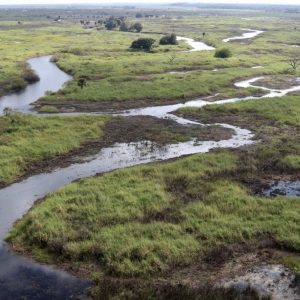The Stream, July 19: Controversy Over Major Power Plants Could Affect Critical Waterways
The Global Rundown
Opponents of a proposed power plant in Bangladesh are appealing to the United Nations in order to protect the world’s largest mangrove forest. Pakistan and India continue to quarrel over two hydropower plants currently under construction. Coral around the globe is at increased risk because of warming waters. Mozambique recently received nearly $100 million in financial support for drought victims from the United Kingdom and other sources. Also in the UK, a group at the Cranfield University recently received a Bill & Melinda Gates Foundation grant for their waterless, power-generating toilet.
“It’s an absolute tragedy that in 2016, billions of people still don’t have a hygienic place to go to the toilet. That presents such severe health, dignity and safety issues.” –Alison Parker, Cranfield researcher, on basic human needs that the Nano Membrane Toilet is expected to fulfill. They waterless system will also burn solid waste, converting it to enough energy to charge small mobile phones. CNN Money
By The Numbers
$97 million Funds Mozambique received from the United Nations ($60 million), the United Kingdom ($22 million) and the World Bank ($15 million) to support victims of drought. While the emergency money will assist more than 450,000 citizens, 1.5 million have been affected by the region’s worst drought in 35 years. The Southern African Development Community, of which Mozambique is a member, also plans to appeal to the international community for $2.7 billion in humanitarian assistance to combat regional drought and the effects of El Nino. Bloomebrg
7.9 million tons Amount of carbon dioxide a proposed power plant in Bangladesh would expel into the atmosphere annually. India’s state-run Bharat Heavy Electricals Ltd. is planning to construct the Rampal power plant in the Sundarbans, an ecologically diverse and integral region. Opponents of the construction project also fear that the nearby Passur River, a source of water for the world’s largest mangrove forest, will become tainted with waste from the plant. Currently, a 50,000-signature petition before the United Nations Educational, Scientific and Cultural Organization requests that the entire Sundarbans be included on the official List of World Heritage in Danger. Washington Post
Science, Studies, And Reports
Increased environmental warming has caused a prolonged, global-scale coral bleaching event which could prove fatal for many of the ocean’s most important ecosystems. When coral are stressed by heat they often eject the symbiotic algae living in their tissue. In addition to turning the coral white, this algae exodus also leaves coral without their main food source and in danger of starvation. The current wide-scale bleaching event began in 2014, and some scientists fear it may continue through 2017, making it the longest in history. They also predict similar events will become increasingly frequent as global waters continue to warm. Science News for Students
Much of the well water in rural India is dangerously salient and the reverse osmosis process by which it is treated often carries a high energy cost. However, if village trials for a Massachusetts Institute of Technology solar-powered desalination system prototype are successful, it could mean cheap, drinkable water for more than 250 million people. MIT News
On The Radar
Pakistan has once again taken India to court over two hydropower projects being built in its backyard. The former holds that the later is violating the 1960 Indus Waters Treaty and has called on the Hague-based International Court of Arbitration to intervene. The ICA initially ruled on the grievance in 2013, determining that a compromise would be overseen by a team of arbitrators from both nations. However Pakistan now alleges India is attempting to complete the projects before the arbitrators, who have still not been chosen, can be put in place. The political deadlock continues, and reports indicate Pakistan has retained two US-based law firms. The Third Pole
Circle of Blue contributor
Nick is interested in the social and political instability caused by growing global resource scarcity. He is also the director of communication at On the Ground, an international aid and development NGO that supports sustainable community development in farming regions.





